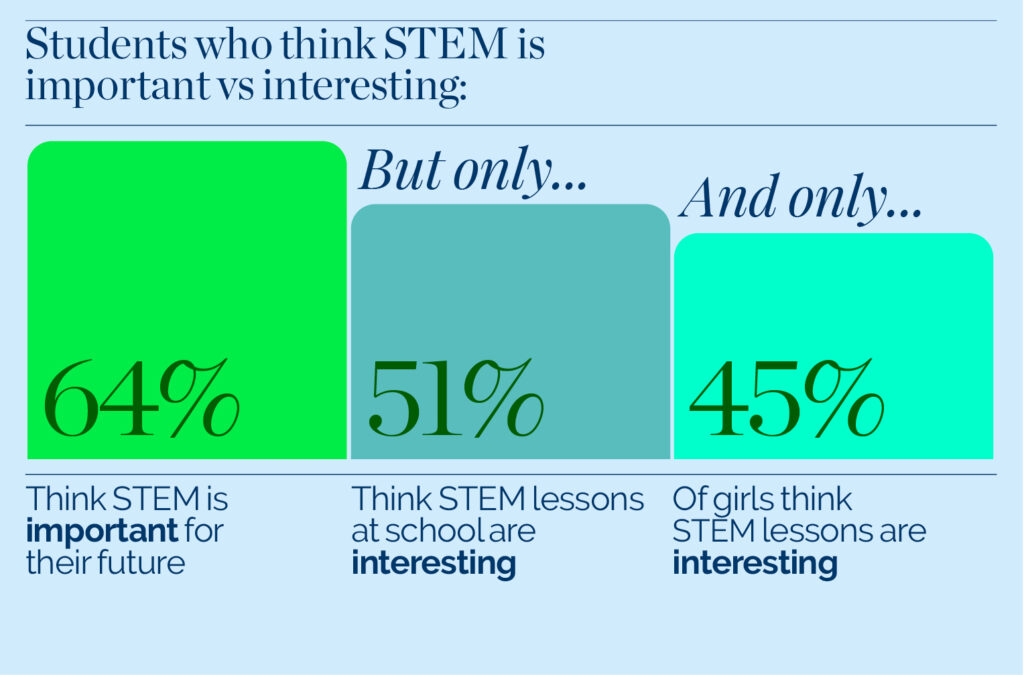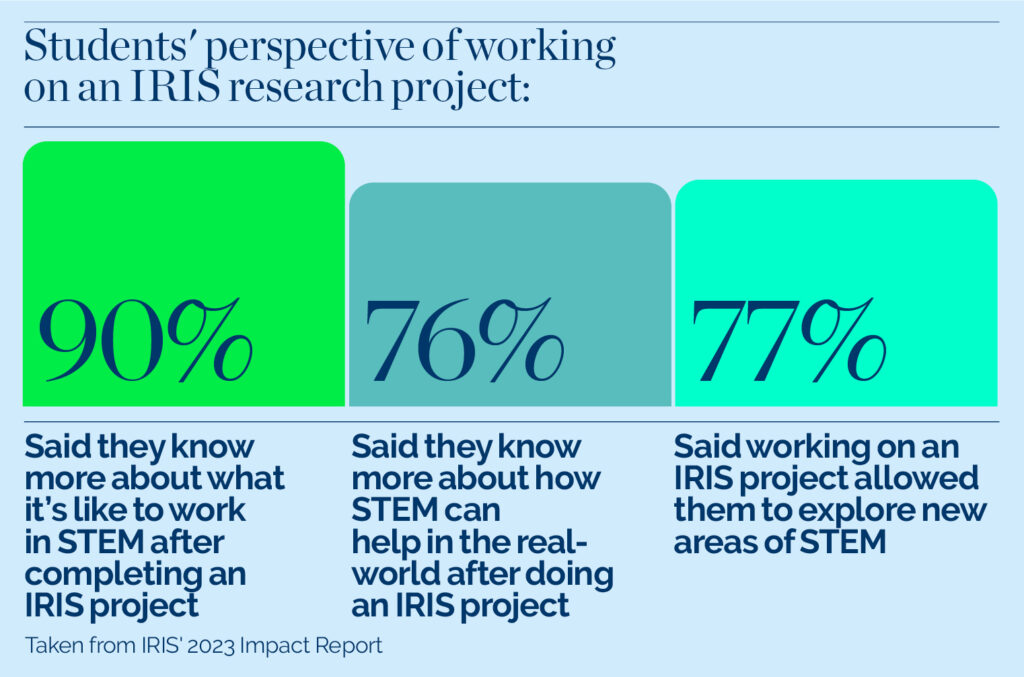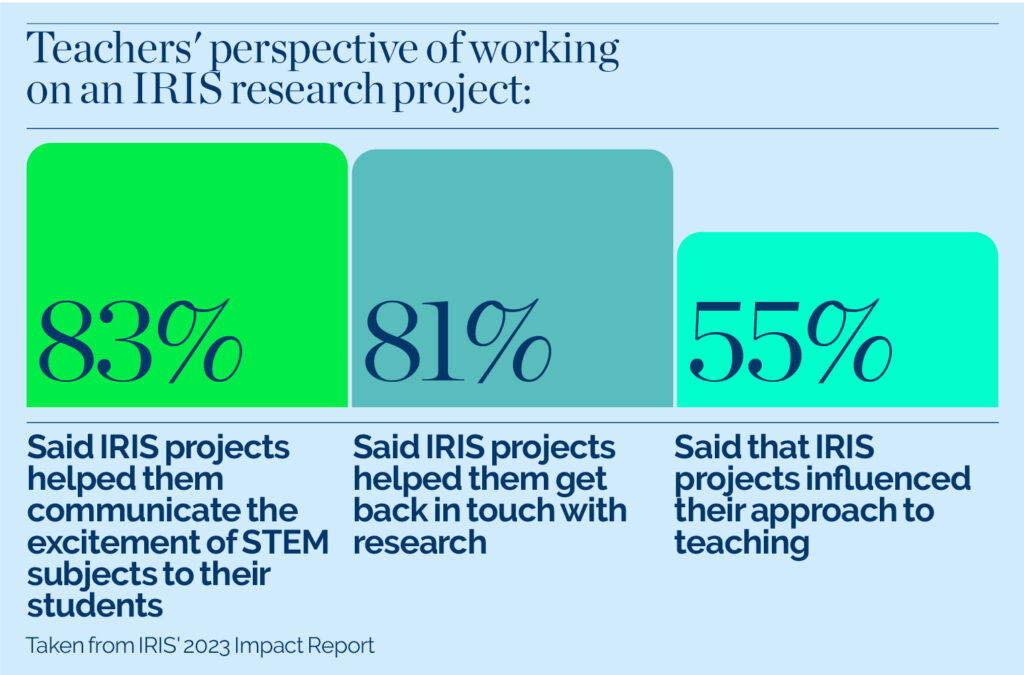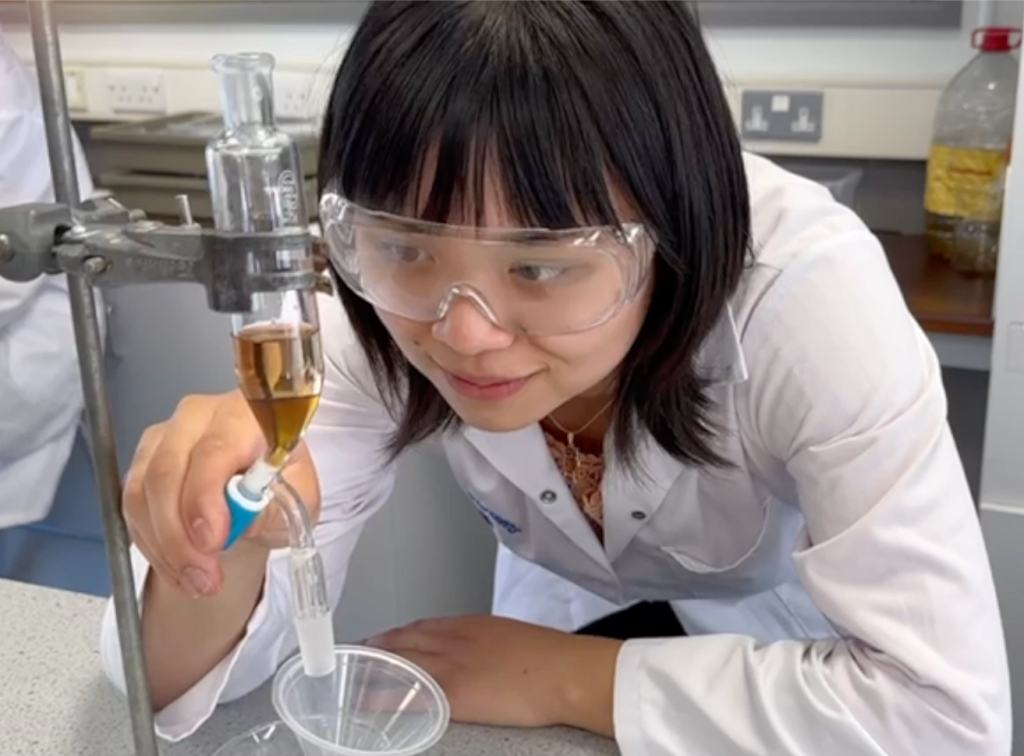
Young people know STEM lessons are important, but they’re just not interesting enough
Although young people see the importance of STEM subjects for their futures and the wider world, over half of students surveyed by IRIS do not enjoy their lessons. What is missing from their classroom experience that might explain this lack of enthusiasm?
As part of IRIS’ efforts to better understand student attitudes towards STEM, our team recently surveyed over 2,800 young people in year 9. The results revealed a striking contrast: although two thirds of students clearly saw the importance of STEM for their future, over half said that they did not enjoy learning STEM at school (54%) and did not find their lessons interesting (51%).
Breaking the data down, we found girls and students eligible for pupil premium funding were even less likely to find STEM lessons interesting or enjoyable. For example, the proportion of students who find STEM lessons interesting drops to 45% among girls. While STEM are favourite subjects for 44% of boys, only a third of girls (32%) and pupil premium students (33%) felt the same.

We also asked students how STEM is brought to life in their classrooms. Over two thirds of the young people we surveyed (71%) had opportunities to carry out experiments and practical work as part of their lessons. Unsurprisingly, students enjoy practical work and when asked what they would like more of, the most popular response was more ‘practical work and experiments’.
But we might miss a chance to go further and really engage students if we treat practicals as an added bonus. Only a quarter of students we surveyed had carried out longer-term investigations, and only 29% had shared their work with peers outside the classroom. Less than half (48%) said they had discussed how STEM knowledge is used in real life as part of their curriculum.
IRIS’ own efforts to engage young people in STEM are based on authentic research experiences. Students on our projects work together on long-term investigations that are linked to real-world applications, whether that is measuring their own school’s carbon footprint, analysing new data from a major research telescope or investigating the useful properties of ionic liquids. They come up with novel insights, and we encourage them to present their findings to peers from other schools at our annual conferences.


So far, we’ve observed that young people who carry out STEM research become more enthusiastic about these subjects. After acquiring essential knowledge, both through the curriculum and through initial stages of the project, they get to apply their learning to a question where the answers aren’t already given. They become excited by the idea of finding out new things, and contributing, even if in a small way, to our collective understanding. Crucially, this process gives students something lacking in the curriculum: a sense of how STEM works in the world beyond school.
For IRIS, it has been especially rewarding to see young people traditionally marginalised in STEM fields—like girls and disadvantaged students—taking part in our projects. They experience first-hand what it means to be a researcher and realise the potential applications of what they learn. They also benefit from meeting professional role models and learning about the “real world” of STEM that might otherwise seem off-limits to people like them. This journey kindles passions and possibilities for young people that were not there before.
Sometimes overlooked, teachers themselves also benefit from extended research projects. Given their day-to-day responsibilities, teachers often have little opportunity to engage with cutting-edge developments in their fields. They have told us that accompanying their students on a project, and becoming ‘teacher scientists’ themselves, reinvigorates their enthusiasm for their subject.
IRIS hopes that, by collecting data on students’ experiences of STEM, we can advocate for the best approaches to engage all young people in these fields, with a focus on research. Our goal is to amplify these positive impacts, ensuring more and more students start to see STEM subjects as not only important for their futures, but interesting and enjoyable, too.
Read our latest impact report for more on the positive outcomes of completing our STEM projects for young people.
 OUR IMPACT
OUR IMPACTOur report shows the profound impact of research on students and teachers in the 2022-2023 academic year
 OUR VISION
OUR VISIONSee our vision for a future where every young person experiences authentic research in school.